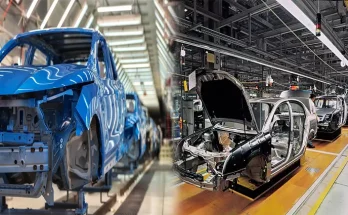As the world’s largest industry by revenue, the automotive sector is also one of its most complex. Although many people think of it as a single entity, there are actually dozens of different jobs within the auto industry – each with its own set of duties and responsibilities. The following list describes some common executive titles you might see when looking at job postings in this field:
Automobile industry executive job titles
The automobile industry is a very large and complex industry. There are many different types of jobs in this field, and some require more technical skills than others. Some automotive executives need to have good management skills to lead their teams; others simply need the ability to work with their hands and make things happen on their own.
As you can imagine, there are many different kinds of executive positions available within an automotive company or dealership. These positions vary greatly depending on what kind of business you’re working for: car manufacturer or dealer? Large corporation or small business? One thing remains constant across all industries though: compensation packages tend toward higher pay levels than other industries because they require so much specialized knowledge!
Chief Executive Officer (CEO) – The CEO is the person who runs the entire company, from marketing and sales to production, design, finance and human resources. The CEO usually reports to the board of directors.
The Chief Executive Officer (CEO) – The CEO is the person who runs the entire company, from marketing and sales to production, design, finance and human resources. The CEO usually reports to the board of directors.
The Chief Operating Officer (COO) – The COO oversees daily operations for an organization and reports directly to its president or CEO. He/she may be responsible for managing multiple divisions within a large corporation or head up one specific division within a smaller firm like yours!
The Vice President (VP) – A vice president has responsibility over certain areas within an organization such as Finance/Accounting; Marketing & Sales; Human Resources etc., depending on what type of business you’re running!
Chief Financial Officer (CFO) – The CFO is responsible for managing the company’s finances. They are often an expert on laws affecting the business and advising management on how best to use money to advance their goals.
A chief financial officer (CFO) is a senior-level executive who oversees the company’s finances. The CFO is responsible for managing the company’s finances and often has expertise in accounting and tax laws. They also advise management on how best to use money to advance their goals, including investments in new equipment or buildings or advertising campaigns that would benefit the business.
In addition, many CFOs are responsible for creating budgets and monitoring spending levels within their companies so they know whether they can afford any new projects before moving forward with them. A good CFO needs strong leadership skills as well as knowledge about how businesses operate generally speaking; he must be able to communicate effectively with both employees and clients alike if he wants his advice taken seriously by those who might not understand what he does every day at work (i.,e., most people!).
Chief Operating Officer (COO) – The COO oversees operational aspects of a company, including manufacturing, logistics, production processes and customer service. Depending on how large or small the company is, they may be responsible for other functions too.
The COO is the second most powerful person in a company, after the CEO. A Chief Operating Officer (COO) oversees operational aspects of a business, including manufacturing, logistics, production processes and customer service. In some companies they may also be responsible for HR or finance departments as well. The COO is often considered to be the right hand of their CEO and reports directly to them on all issues related to operations within their organization.
The role can vary greatly depending on how large or small your company is; however it’s likely that you’ll be required to manage staff across multiple departments such as manufacturing or logistics who will help deliver your overall business goals
Chief Information Officer (CIO) – The CIO handles all information technology-related matters within an organization. This includes managing tech support departments, creating new systems and enforcing security measures to protect data from cyber-attacks.
The CIO is responsible for all information technology-related matters within an organization. This includes managing tech support departments, creating new systems and enforcing security measures to protect data from cyber-attacks.
The chief information officer (CIO) is also called the chief technology officer (CTO). The CTO handles all aspects of technology within a company or organization. He or she creates policies that guide employees’ use of computers, phones and other devices; makes sure they have access to the latest software updates; oversees network operations; monitors security threats against IT systems; hires qualified staff members who can keep everything running smoothly without causing any problems with productivity levels among other things like employee training programs etcetera..
Vice President of Engineering – Engineers develop new technologies for automobiles that are more efficient or make driving safer or more enjoyable for drivers everywhere. Some engineers focus on developing new engines and engine components rather than designing entire vehicles from scratch.
In the automotive industry, Vice President of Engineering is a high-level executive position that oversees all aspects of engineering and development for an automaker’s vehicles. This person is responsible for managing teams of engineers who develop new technologies for automobiles that are more efficient or make driving safer or more enjoyable for drivers everywhere. Some engineers focus on developing new engines and engine components rather than designing entire vehicles from scratch.
Vice Presidents of Engineering typically report directly to their company president or CEO but may also be involved in other types of management roles if they supervise multiple departments within an organization (e.g., manufacturing).
Oops! Click Regenerate Content below to try generating this section again.





